A wonderful bunch of Globalworks teenagers stayed for 4 days and helped with road repairs and maintenance. Muchas gracias!
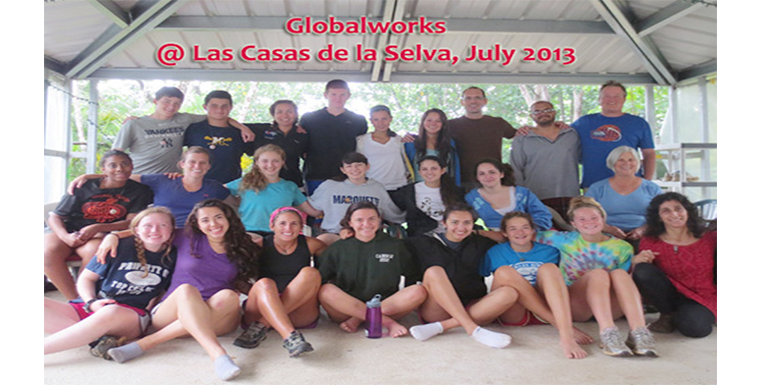

A wonderful bunch of Globalworks teenagers stayed for 4 days and helped with road repairs and maintenance. Muchas gracias!
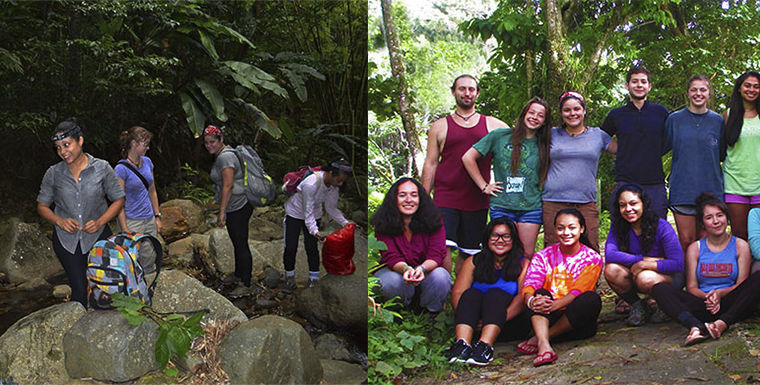
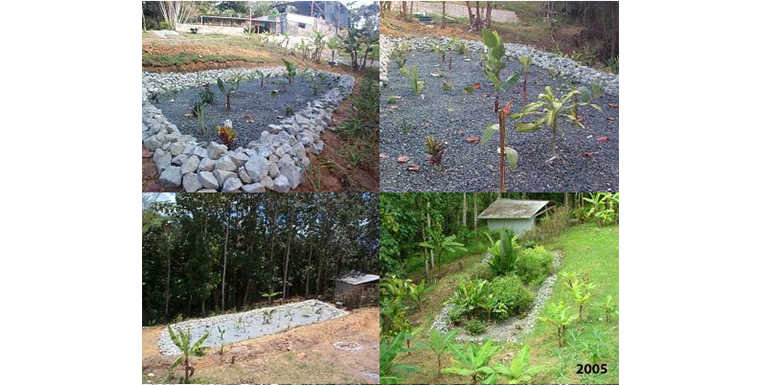
April 2004 was one of the driest seasons at Las Casas de la Selva which proved to be very fortunate for an exciting and busy session with the construction of a Wastewater Garden at the homestead. The team that gathered to complete this project in 15 days were: Dr. Mark Nelson, Chairman of the Institute of Ecotechnics, Mark ‘Laser’ Van Thillo, Abigail Alling, Gessie Houghton, Robert Townsend, Gregg Dugan, Chris ‘Dolphin’ Cook, Gilberto ‘Tingo’, Carmelo Torre, Javier Rojas, Sally Silverstone, 3t Vakil.
Wastewater Gardens® were developed by Dr. Mark Nelson, Chairman of the Institute of Ecotechnics and head of Wastewater Gardens International. The system was originally developed as part of the pioneering Biosphere 2 closed ecological system in Arizona. The system uses the technology of subsurface flow constructed wetlands so that there is never any exposed wastewater – thus preventing odor and accidental human contact.
Wastewater Gardens are an ecological, low cost, low maintenance solution to the problem of human waste. Improperly treated sewage causes ecological damage, pollutes drinking water supplies, and is literally a waste of potentially valuable freshwater enriched with nutrients in a world increasingly short of water resources. Using no mechanical or moving parts and no chemicals, all wastewater is recycled via a gravity system into elegant, biologically diverse gardens that produce lovely flowers as well as fruit and vegetables that can be eaten by humans, fodder crops for animal consumption or fuel-wood and fiber. The systems are carefully sealed so no wastewater contaminates the soil, ground water, rivers, lakes, or coastal waters.
Big Thanks to: Zabel Corporation, and Brian Borders for parts and filters for the Wastewater Garden. Firestone Corporation, and Marco Seiber for the donation of the liner for the Wastewater Garden and with all the help in getting it to us on time.
This Waste Water garden was built with a Grant from the Departamento de Recursos Naturales y Ambientales Puerto Rico. Gracious thanks to all those who made it possible.
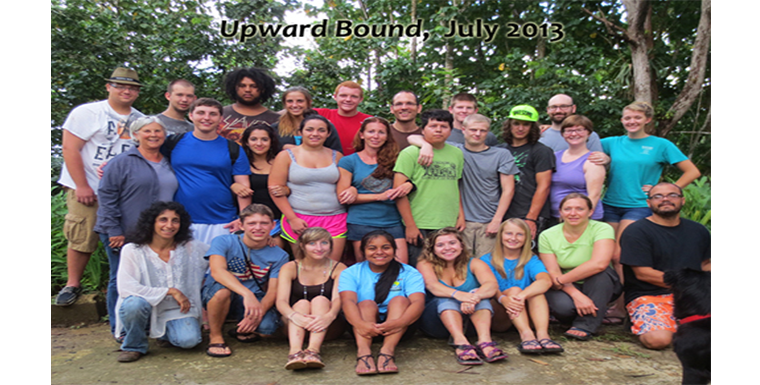
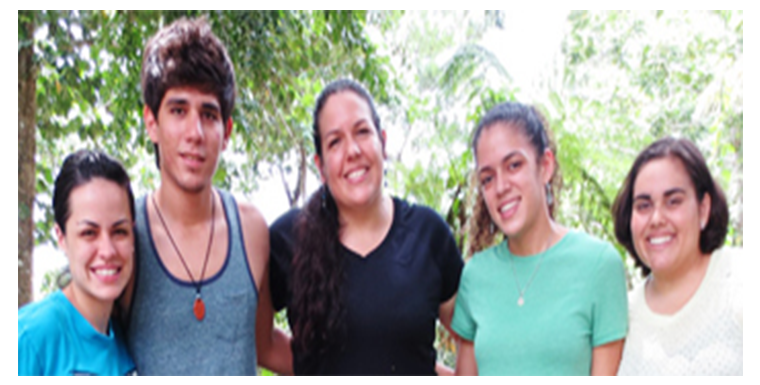
Frogging at Las Casas de la Selva! Patricia Caligari (center) is pursuing a Masters Degree at University of Puerto Rico. L-R: Rosangela, Michel, Naomi and Monica are her assistants in the field and they are taking credits as part of their bachelor degrees.
Geographic assessment of the response of three different endemic Puerto Rican anurans to the pathogenic fungus Batrachochytrium dendrobatidis (Bd)
ABSTRACT
Chytridiomycosis is a lethal infectious disease caused by the pathogenic chytrid fungus Batrachochytrium dendrobatidis (Bd), which is responsible for the extinction of many amphibians worldwide. In Puerto Rico three species of Eleutherodactylus disappeared potentially due to this pathogen, and many others are at risk. A synergistic effect between Bd and climate was shown for two species at El Yunque, but this relationship has not been tested in other species or forests. The purpose of this study is to evaluate the status of Bd in three endemic species, Eleutherodactylus wightmanae, Eleutherodactylus coqui, and Leptodactylus albilabris, which differ in conservation status, ecology and life history, in three highland forests across the island. Results from this study will enhance our understanding of the mechanisms of Bd under enzootic conditions.
Her advisor is Dr. Patricia Burrowes, who also co-authored our biodiversity and frog study paper.
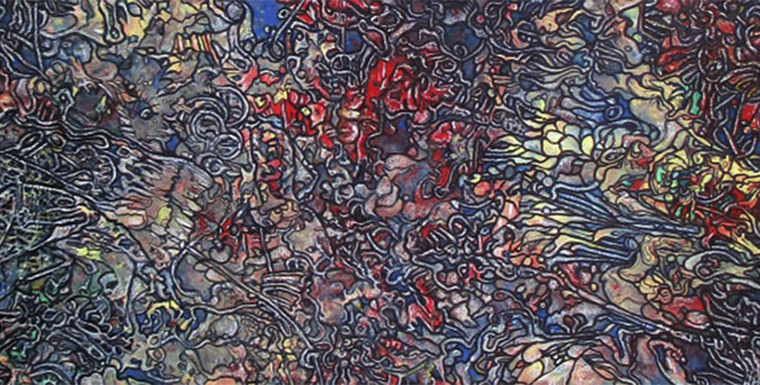
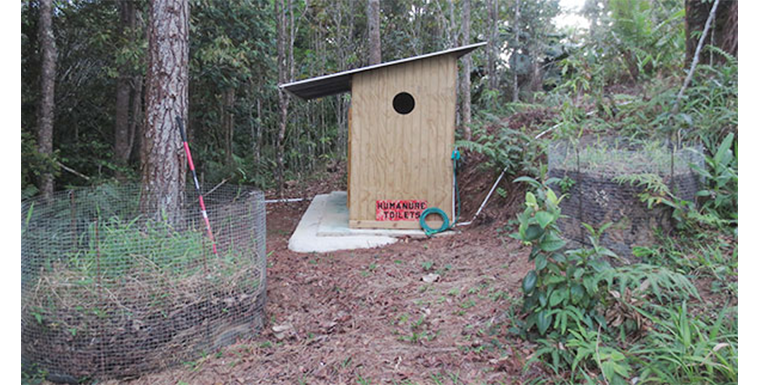
Since February 2013, our new composting toilets have proved a huge success with everyone who has used them. Several Alternative Spring Break University groups in March 2013 made valuable deposits in our new humanure composting toilets, and we have one compost full and another already started. Up for a visit? Come have the splash-back free experience and leave a valuable resource behind. If you wrote a poem, be sure to leave it here too!
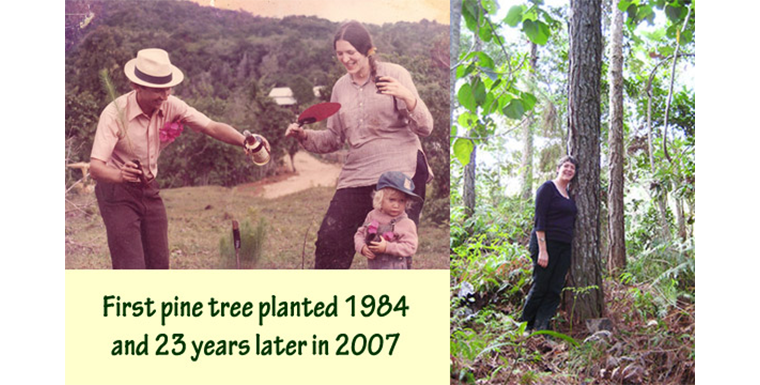
John Druitt and Sally Silverstone plant the first pine tree in 1984. Here is Sally in 2007 with the same tree.
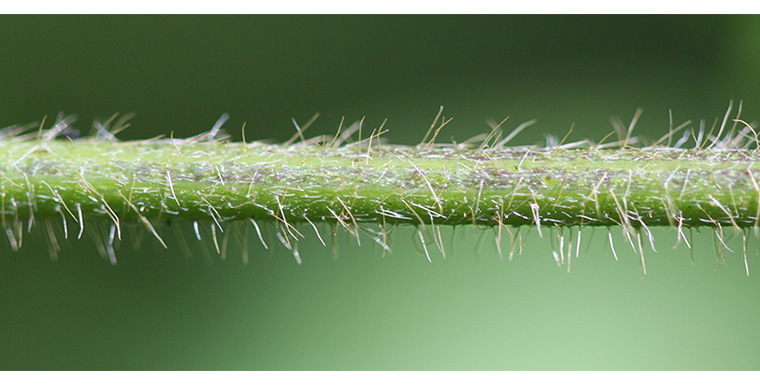
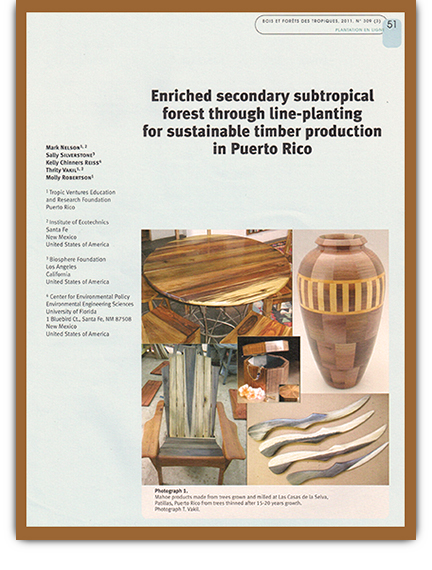
SUMMARY
1984: In general the plantation design was to plant at approximately 3m (10 ft) spacing within the lines and 10m (32.5 ft) from line to line through the forest. In the process of line planting, larger trees and valuable native timber species were left in place and the lines continued with a gap left around them. This technique closely mimics a medium-sized tree fall gap, in which the forest floor litter and soils are undisturbed, but the above ground nearby competition is removed, such as vines and overhanging branches.
2000-2008 19 study plots, 1 acre (0.4 hectare) in size 16 plots of mahogany 3 plots of mahoe. 997 trees studied. Complete sets of reading taken twice. Range 24 to 42 mths between readings.
SURVIVAL RATE Mahogany plantings – 28% approx (dependent on plot aspect- see results, sw best) Initial planting approx. 370 trees per hectare (148 trees per acre) Mahoe plantings – 66%. Initial planting approx. 415 trees per hectare (166 trees per acre) DBH Mahogany trees are increasing in dbh by an average of 0.6 cm per year Mahoe are increasing by an average of 0.91 cm per year. HEIGHT since planting: Mahogany has grown in height at a rate of approximately half a meter per year. Mahoe at a rate of approximately one meter per year.
INDICATIONS The growth data indicate the Mahoe plantation has been far more successful than the mahogany in terms of wood production. At current rates of increase it would take the mahogany at Las Casas another 27 years to get 30 cm dbh trunks for logging, giving a total time from planting to harvest of 43 years. It is currently possible to harvest marketable wood from the mahoe at 15 years. Current conservative estimates for standing marketable wood for mahoe are approximately 58 cubic meters per hectare (25,000 board feet per hectare or 10,000 bd ft per acre). This makes the Mahoe a good candidate for sustainable forestry management where the aim is to get the trees on a cycle of harvesting and replanting to provide a continuous income. A final evaluation of this line planting method as a model for sustainable forestry will be possible when trees are being annually harvested selectively, replanting begins, and the wood and products successfully sold for profit. Future challenges with the Mahoe plantations will involve working out the best thinning and replanting strategies, (and dealing with issues of extraction on slopes, drying techniques, and forest road and bridge repairs after nearly thirty years and two hurricanes). The challenge is on.
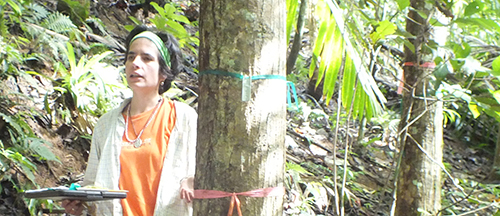
Ongoing research on the Mahoe plantation: 2010 – 2012
Jimena Forero is pursuing a PhD Degree at the University of Puerto Rico, Rio Piedras campus. As part of her dissertation she is describing the stand density and the canopy structure of our mahoe enrichment plantation in order to make recommendations for its management. Using our three 1-acre permanent mahoe plots, she has, with the help of undergraduates and Earth Watch volunteers conducted a forest inventory over two years (2010-2012) of these plots at Las Casas de la Selva. Her academic supervisor is Dr. Jess K. Zimmerman, Environmental Sciences professor at University of Puerto Rico, Rio Piedras. Another part of her dissertation involves interviewing artisans all over the island, who use forest products.
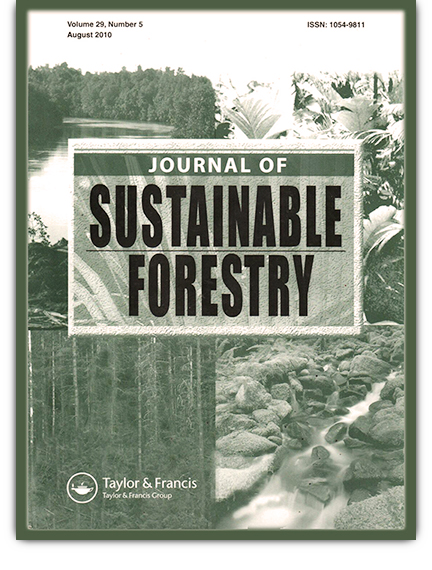
NELSON MARK, SILVERSTONE SALLY, REISS KELLY, BURROWES PATRICIA, JOGLAR RAFAEL, ROBERTSON MOLLY, VAKIL THRITY, 2010. The impact of Hardwood Line-Planting on Tree and Amphibian Diversity in a Secondary Subtropical Wet Forest of Southeast Puerto Rico. Journal of Sustainable Forestry, 29(5): 503-516.
(Click link above to download 188KB PDF)
SUMMARY
2000-2004 Amphibians: Amphibians are especially useful as biological monitors of environmental health (Wake, 1991). Because in Puerto Rico frogs are the most important vertebrate nocturnal carnivores, a change in their population dynamics could have an important effect on the forest food web (Joglar, 1998). Thus, monitoring amphibians at Las Casas de la Selva was a suitable way to assess the impact of a line-planting forestry approach to tropical forest ecosystems. Main difference between the studied forested areas was that one had been disturbed to plant trees of potential economic value (line-planting), while the other area had been left undisturbed. There was no difference in species composition between the two areas studied. Eleutherodactylus coqui and E. wightmanae are the two most common species in both forests, with occasional sightings of E. portoricensis.
We were happy to note:
Analysis of variance (ANOVA) of mean relative abundance of the two most common species revealed no significant difference between forests.
This is encouraging data.
These results suggest that the degree of disturbance caused by planting economically valuable trees had no effect on amphibian diversity or density in Patillas, Puerto Rico. At a time when the impact of anthropogenic activities on amphibian populations are being evaluated (Stuart et al., 2005), it is important to show that the type of forestry enrichment practiced at “Las Casas de La Selva”, did not have a negative impact on frog abundance. Our work in Las Casas de la Selva is the first record of population densities of E. coqui in the central cordillera of Puerto Rico, and the first record of population densities for E. wightmanae.
At a time when amphibian populations are declining all over the globe, and populations of these two species are declining at El Yunque, these data from Patillas represent a very valuable baseline that will allow us to monitor population fluctuations and potential declines associated to climate change or disease. Chytrid fungus Since June 2004, various species of frogs at Las Casas de la Selva have been sampled for the incidence of a pathogenic chytrid fungus, Batrachochytrium dendrobatidis (Bd). This fungus is specific to amphibians and has been associated to their decline in various parts of the world (Longcore, 1999), including Puerto Rico (Burrowes et al. 2004). Tissue is taken from toe clippings and/or ventral skin scrapes, and analyzed for the chytrid DNA via specific PCR diagnostic methods. Results show the presence of chytrids in Patillas as early as 2005. At present, the level of incidence of Bd infection in Eleutherodactylus coqui is of 50 % and in E. wightmanae is 44 %. Biodiversity of Trees: Overall the line-planting program has resulted in a small increase in overall diversity of tree species in those areas. See results in the full paper, link above.
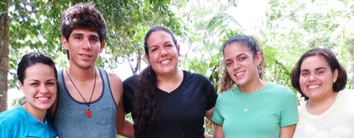
Ongoing Coqui frog research at Las Casas de la Selva: 2010 – 2012 Patricia Caligari (center) is pursuing a Masters Degree at University of Puerto Rico, and as part of her thesis is sampling for chytrid in three species of endemic frogs in different parts of Puerto Rico, including Las Casas de la Selva. Her crew of undergraduate students help in the field and lab with DNA extraction. Her advisor is Dr. Patricia Burrowes, co-author of our paper above. More info
All studies are a building block in the more complex strategy of developing techniques to both satisfying human needs and conserving the resource base.” Ariel Lugo
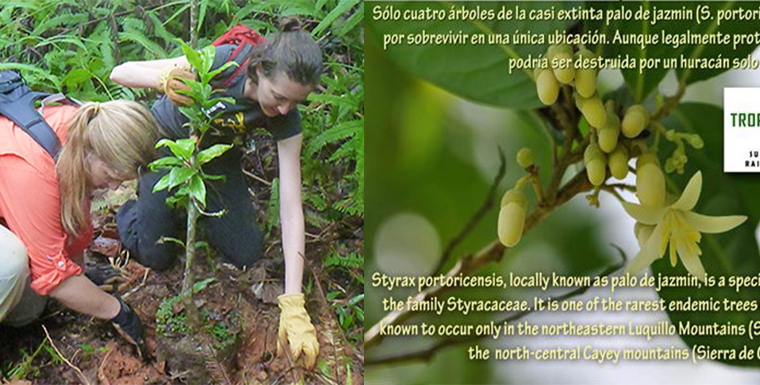
This program has been formulated to protect endangered flora and fauna by planting endangered endemic tree species, and working on habitat enhancement in subtropical wet forest. The location and the quality of the habitat of the 930-acre forest property of Las Casas de la Selva is ideal for the establishment of projects toward the recovery of various endangered endemic tree species. The property’s north-eastern border adjoins the Carite State Forest which contains another 6,660 acres of subtropical wet mountain forest land.
Tropic Ventures Research & Education Foundation are collaborating with US Fish and Wildlife Service (FWS) to develop habitat enhancement and restoration projects that benefit endangered endemic species of Puerto Rico. The animals include the Puerto Rican boa (Epicrates inornatus), broad-winged hawk (Buteo platypterus brunnescens), Puerto Rican sharp-shinned hawk (Accipiter striatus venator), the Guajon coqui frog (Eleutherodactylus cooki), and Puerto Rican plain pigeon (Columba inornata wetmorei).
Most of these species have been identified on this land, which makes it eminently suitable for their long-term habitat protection & enhancement. The area also provides habitat for several listed trees that have been identified within this geographical area (Eugenia haematocarpa and Callicarpa ampla). The area also harbors habitat for two Candidate Species; the elfin-woods warbler (Dendroica angelae) and the vine/shrub Gonocalyx concolor. The proposed project will also focus on the establishment of two experimental populations of the federally listed tree Styrax portoricensis. Furthermore, the area to be enhanced is part of the Rio Grande de Patillas upper watershed, which serves a large regional population with potable water, and will benefit the water quality of this river by reducing soil erosion.
As part of this project, Tropic Ventures Research and Education Foundation agree to maintain and protect the specific areas to be enhanced or under restoration practices for a period of at least 10 years. The areas for habitat enhancement will not interfere with other areas of the property which have been planted with forest enrichment trees, and is already in a program of sustainable management including selective harvesting of timber trees. Las Casas de la Selva is certified as Stewardship Forest and under the auspices of the Puerto Rican Department of Natural Resources (DNR) and the International Institute of Tropical Forestry (IITF) has an approved Stewardship Management Plan. Tropic Ventures Research & Education Foundation has a contract with Tropic Ventures (the managing entity) to conduct scientific studies and educational research work on the entirety of the land for the next 50 years.
Earthwatch volunteer collaboration
Initially Earthwatch volunteers will be engaged in the process of site selection, site mapping, tagging and planting, measuring the saplings, and data collection. A biologist from FWS may accompany us on some these expeditions to assist in the process. See below for long-term monitoring process. All tree work is dependent on weather and care will be taken on steep slopes as always. There will always be nursery work, which may include pruning, care and maintenance of young seedlings, and of endangered tree species.
PROPOSAL
1. ENDANGERED SPECIES: Establishment of new populations of Styrax portoricensis. Establish at least two populations composed of about 50 individuals each in approximately 2 acres. Expected survival is 75% after the 2nd year of planting. Styrax portoricensis, locally known as palo de jazmin, is a species of flowering plant in the family Styracaceae. It is one of the rarest endemic trees of Puerto Rico and is found only in the northeastern Luquillo Mountains (Sierra de Luquillo) and the north-central Cayey mountains (Sierra de Cayey).
2. HABITAT ENHANCEMENT: Establishment of a shade nursery for caring and sheltering of saplings of threatened endemic species until planting.
3. LONG TERM MONITORING: The aim of this effort is to monitor the initial survival, growth rate, and success of the reintroduced material to ensure the best contribution to the recovery of the species.
4. REPORTS: Annually
5. OUTREACH: We will develop an outreach project to promote the recovery efforts and to educate the local community and visitors. This program will include fliers, brochures, and boards and signs along trails etc.
This project has enabled Andrés Rúa to visit with sawmill owners over the island, interview dozens of artisans who work with forest products, as well as large & small scale wood & product dealers. The project aims to investigate use of forest products in Puerto Rico; where wood is coming from, what types of wood, who are the buyers, and what other forest products are in demand and use?
A symposium in April 2012 brought together over eighty people, ranging from foresters, arborists, woodworkers, DRNA staff, artisans, architects, professors, and UPR students, the symposium was hugely informative. The event was dedicated toCarlos Domínguez Cristóbal, author of “Panorama historico forestal de Puerto Rico”, and to recently retired forester Dr. Peter L. Weaver from IITF.
The Forest Products Assessment project continued with an in-the-field event in August 2012 led by Andrés Rúa. A pine tree was felled by arborist Andre Sanfiorenzo, hauled out by tractor, and milled. The event was to bring together and give those who shown an interest at the last Symposium the opportunity to actually partake in a timber project. Andrés showed the mill at work and several people had the chance to operate it. After a gourmet lunch, the afternoon continued in el teatro where lively and heated discussions dealt with the next steps to creating an intelligent future for timber production and forest products in Puerto Rico.
March 2013 saw the beginning of the second phase of the Forest Products Assessment, with a meeting at the International Institute of Tropical Forestry, (Images here) and then in in May 2013 at the University of Cayey, (Images here). More details on www.nuestramadera.org
CADA, Council for the Development of Agro-forestry, founded by Andrés Rúa and 3t Vakil, May 2013, was born from forestry discussions, which began with Frank H. Wadsworth in private meetings in 2008. The open membership includes individuals from universities and the private sector, members of Government agencies, and many other institutions, all brought together with an over-arching interest in the development of policies pertaining to the sustainable and intelligent use of all Puerto Rico’s valuable & unique natural resources.
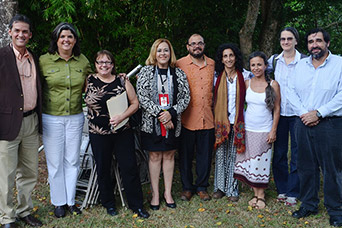
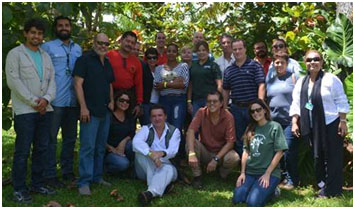
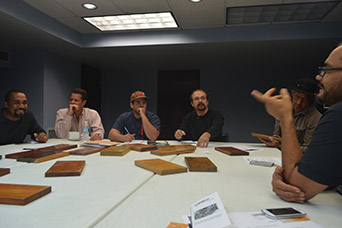
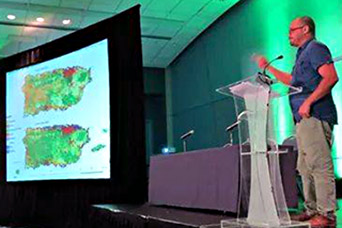
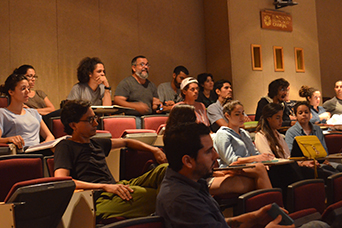
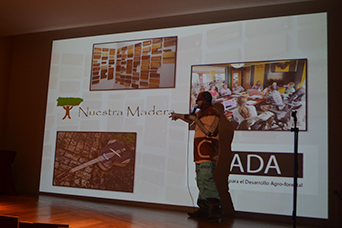
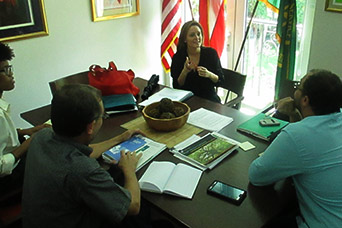
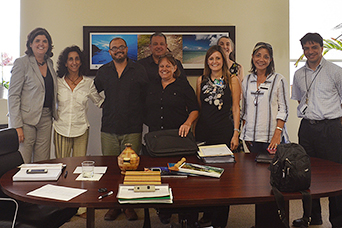
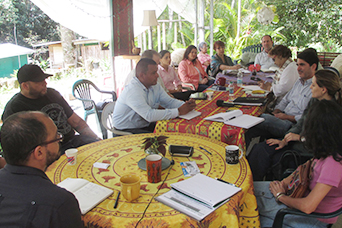
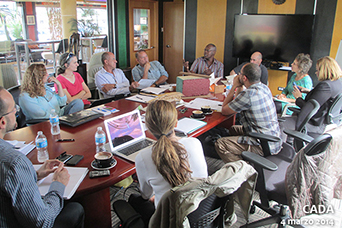
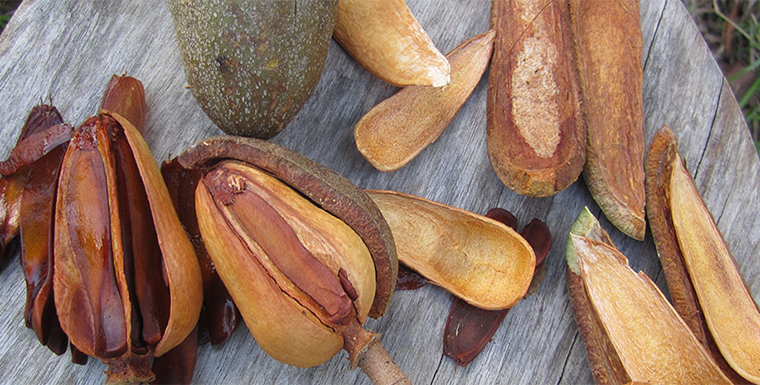
Tropic Ventures Research & Education Foundation was incorporated in 1998 as a non-profit in Puerto Rico to support the project’s research and education activities. The Earthwatch Institute has been a key collaborator in assisting in the scientific mission since 2000. Tropic Ventures Research & Education Foundation has a contract with Tropic Ventures (the managing entity) to conduct scientific studies and educational research work on the entirety of the land for the next 50 years.
Mission
1) To carry out research into the raising and processing of valuable hardwoods as part of a project looking at a total systems approach to rainforest management emphasizing sound ecological practice and economic sustainability.
2) To maintain as a natural rainforest reserve, without human disturbance, approximately 800 hectares of secondary growth forest land at Tropic Ventures’ Las Casas de la Selva project site. The remaining 323 hectares being used to experiment with species enrichment and restoration of damaged areas as well as the raising of hardwoods.
3) To research and maintain a collection of ethnobotanically important rainforest plants, including fruits, ornamental plants, medicinal plants, culinary herbs and plants used for construction and handcrafts. Use of these plants will be researched as economic alternatives to logging.
4) To promote and carry out research and education in ecologically sound use of all forest resources including the utilization of “waste woods” ordinarily deemed not valuable, promoting rainforest preservation and sustainable forestry practice.
5) To hold conferences and workshops on rain forest ecology, including vectors of ecotourism, value added work on timber, economic alternatives and viability of rainforest communities, and sustainable use of rainforest resources.
TVREF relies solely on the generosity of individuals who value the work that we do. Forest research is an invisible yet crucial component of the future of sustainable forestry in Puerto Rico. Further outreach and education need your support, your donation is critical. Thank you so much, it means a lot.
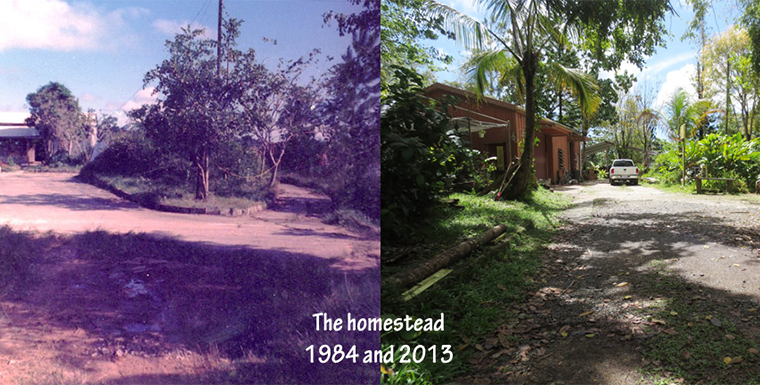
The trees have been growing…changing the landscape…here is the Las Casas de la Selva homestead nearly 30 years later!
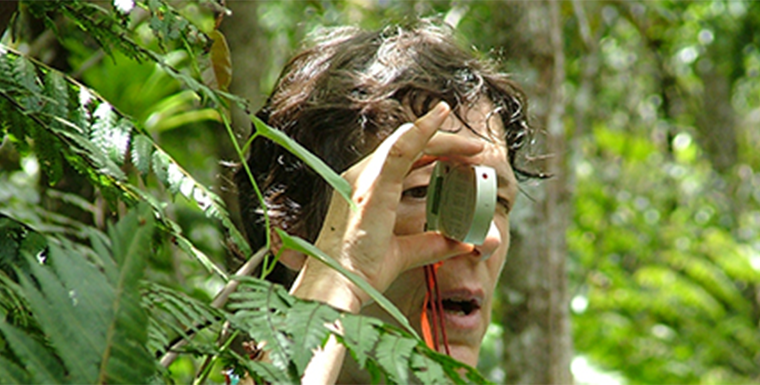
Since 2000, the team at Las Casas de la Selva has been honored to work with volunteers from all over the world thanks to the sponsorship of The Earthwatch Institute. We greatly appreciate the decision that volunteers make to come here and help us accomplish our goals towards sustainable management of this forest. With the data we have been gathering we are able to evaluate the needs and direction of further studies, and implement relevant strategies and land and timber management plans.
Puerto Rico is currently approximately 57% forested, mostly by young secondary forest. The period of economic and cultural change from the 1950s to 1990 in Puerto Rico is seen as proportionally resulting in the largest event of forest recovery anywhere in the world. It is crucial that we understand the ecology of this type of forest, if we are to utilize its timber and other forest products in economically and ecologically viable ways. This project increasingly becomes a living demonstration in new models for approaches to forest management in Puerto Rico and the Caribbean.
With the challenge of our terrain, climate, and steep (often muddy) slopes, it has been a joy to see so many volunteers overcome personal difficulties, and really open themselves to the joy of the outdoor life. Many volunteers have changed the course of their studies or careers after experiencing life and work with us in this stunning, edifying landscape.We have enjoyed the company of all who have trekked through the forest with us, identifying, collecting, and measuring, and equally enjoyed homestead social interactions at the end of a long day. Thank you for involving yourselves in learning about our biosphere with us.
On an Earthwatch Expedition in the Puerto Rico Rainforest: Earthwatch volunteers will be trained in a variety of tasks, which may include measuring trees, counting and identifying lizards or frogs, helping to tag and identify vine species, and helping to set up new experimental plots for planting different tree and shrub species. You will be in beautiful, tropical rainforest areas, sometimes climbing up steep hillsides, and sometimes following fast flowing rivers. You may also have the chance to join a night expedition into the forest to help count coqui frogs. During your recreational time you will be able to enjoy hikes, take dips in nearby rivers, take part in some forest related craft activities, use the project library to learn more about the ecology of the area, or just relax and enjoy an area of rainforest land that very few other people have had a chance to visit. There will also be an opportunity to take a salsa dancing class and to experience the local culture and cuisine.
Principal Investigators for Earthwatch Expeditions at Las Casas de la Selva since 2000: Dr. Mark Nelson, Sally Silverstone, Dr. Patricia A. Burrowes, Dr. Rafael L. Joglar, Thrity J. Vakil, Molly Robertson, Norman Greenhawk, Patricia Boyko, Jimena Forero, & Marta Edgar.
Previous and current advisors and mentors: John P. Allen (Global Ecotechnics), William F. Dempster (Global Ecotechnics), Frank H. Wadsworth, Peter L. Weaver (IITF), Jess Zimmerman (Luquillo LTER, UPR), Pedro Acevedo-Rodriguez, (Smithsonian), D. Jean Lodge, (US Forest Service), Joe M. Wunderle (IITF), Jill Thompson, (El Verde Field Station).
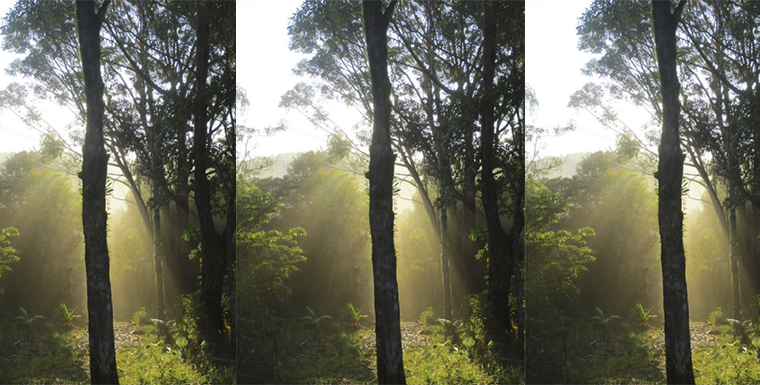
Golden rays in the forest at Las Casas de la Selva…
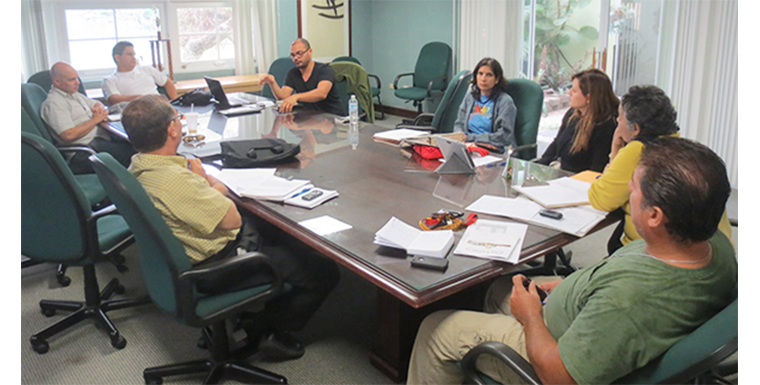
The Forest Products Assessment group formally became C.A.D.A. (Consejo Asesor para el Desarrolo Agro-forestal de Puerto Rico).
Back row: Andrés Rua (TVREF), Enrique Santiago Irrizary (DRNA), Augusto Carvajal (UPR Cayey), Mark Schofield (former editor of Fine Woodworking Magazine), Gerardo Hernandez (Management Official for Toro Negro State Forest), Franklin Roman (UPR Agriculture Extension Officer and Agronomist), 3t Vakil (TVREF)
Front: Jimena Forero Montanez (UPR Phd student), Christina Cabrera (Special Assistant to the Secretary, DRNA), Rosamaria Quiles (DRNA)
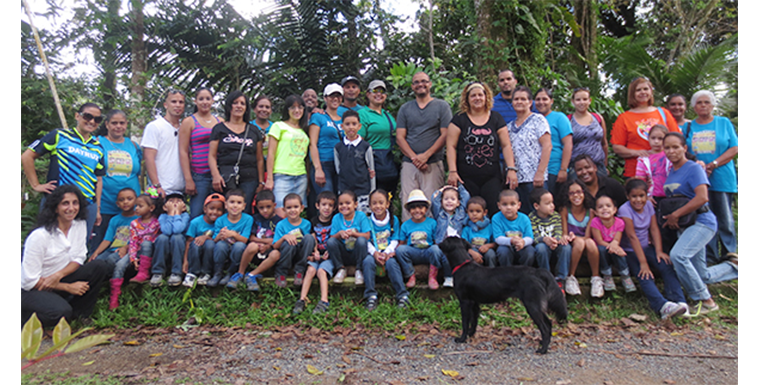
Casas de la Selva. A wonderful group of 18 kids and parents. At ages between 4-5, it is a treat for us to take them into the forest and have an adventure! Let us know if you want a half day in the forest with your kids groups.
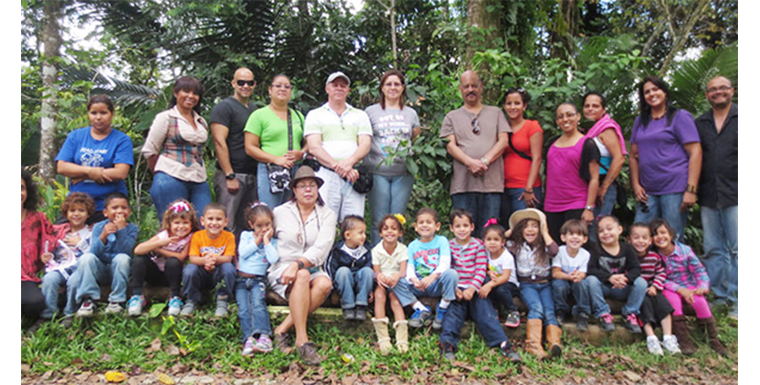
Headstart kids from Ciudad Esmeralda Ambar, Patillas. After a great presentation by Andres Rua, they walked in the forest, looking at trees, flowers, frogs, lizards, plants, epiphytes, and bamboo, and to finish up they planted two very rare trees, Palo de Jazmin (Styrax portoricensis).
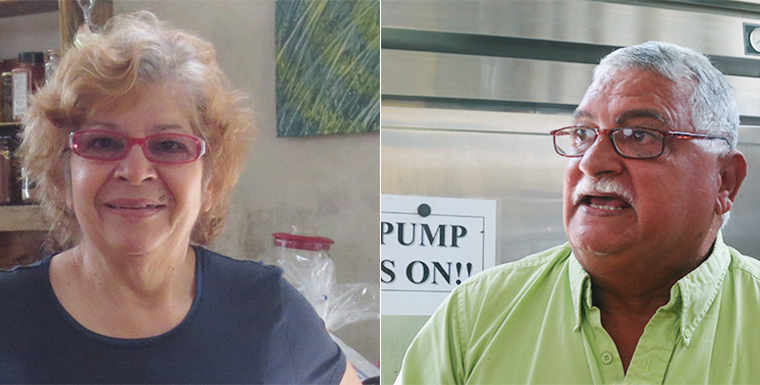
We celebrate our love for Santtos Picapiedra (Flinstone), and his wife Chila, who have been true supporters and friends to this project for three decades.
Santtos is a master stone mason, and gardener, and Chila is an incredible chef, amongst many other things!
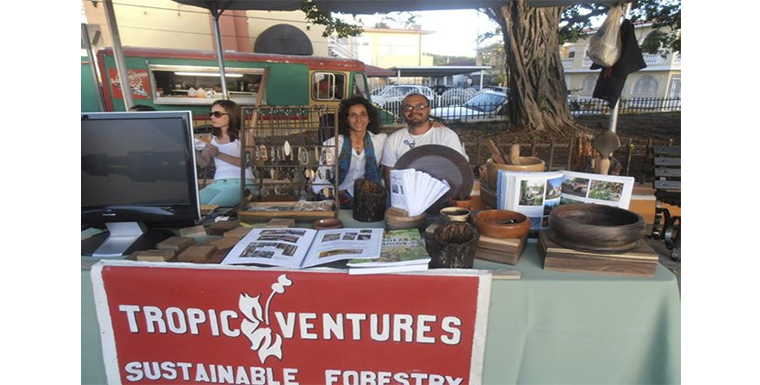
Kids Day in Patillas!! Thank you to everyone in Patillas who organized, led projects, made costumes, worked with kids rehearsing, set up tents, cleaned, and helped make Kids Day a wonderful fundraiser for Escuela Elemental de Marin Bajo. To Ruty Reyes and Tito Lebron, and the best team ever, muchas gracias! Love from The Bosquer@s, Las Casas de la Selva!
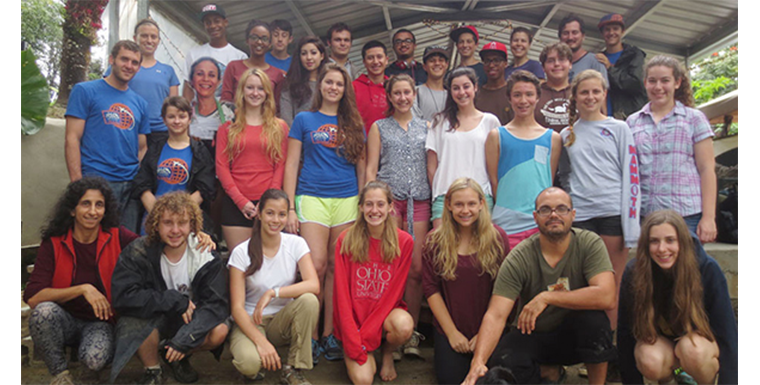
Globalworks bringing teenagers from Vista Mar, LA, on a life-changing adventure trip in Puerto Rico, and helping us make a homestead path in one day! Wow!